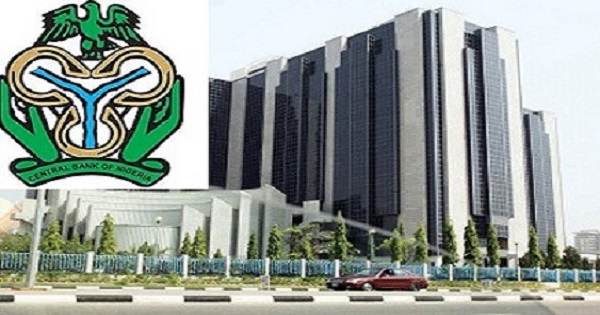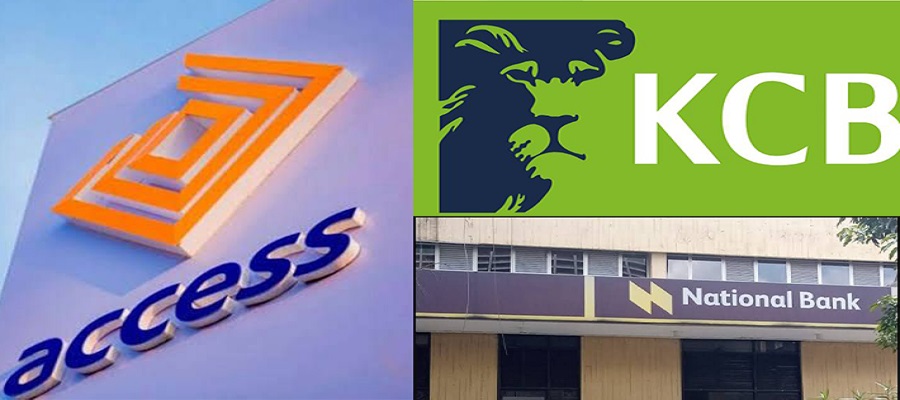E-Financial
How CBN Injected $1.47bn into Forex Market in one Month

The Central Bank of Nigeria injected $1.47bn into the foreign exchange segment of the market as part of its efforts to stabilise the naira in January.

According to figures from the CBN’s January report on its foreign exchange market developments, this was a decrease of 47.4 per cent and 64.0 per cent from the level in the preceding month and corresponding period of 2020.
Part of the report read, “Total foreign exchange sales to authorised dealers by the bank was $1.47bn in January 2021, a decrease of 47.4 per cent and 64.0 per cent from the level in the preceding month and corresponding period of 2020, respectively.
“A disaggregation showed that foreign exchange sales at the I&E, SMIS, SME, and interbank fell by 79.9 per cent, 38.3 per cent, 19.8 per cent, and 37.3 per cent to $0.22bn, $0.48bn, $0.10bn, and $0.04bn respectively.
“Similarly, foreign exchange cash sales to BDC operators and matured swap transactions fell by 19.3 per cent and 48.7 per cent, compared with its level in the preceding month to $0.42bn and $0.12bn respectively in the review period.”
The report said in order to promote transparency and increase diaspora remittance inflows, the bank further updated and reiterated the modalities for the pay-out of diaspora remittances.
In a circular dated January 22, 2021, the bank said it emphasised that only licensed IMTOs were permitted to carry on the business of facilitating remittance transfers into Nigeria.
It added that all diaspora remittances must be received by beneficiaries in foreign currency cash or into their designated domiciliary accounts; and IMTOs were mandated to desist from allowing remittance pay-outs in naira.
The measures were meant to promote transparency in diaspora remittance transfers and thereby improve remittances inflows.
According to reports by members of the Monetary Policy Committee at the last meeting, the CBN continued to defend the naira in January and February.
It noted that naira exchange rate depreciated across the various windows including the I&E and BDC.
External reserves also declined from $36.6bn in December 2020 to $34.46bn in February 2021.
The committee stated that it was early to know the extent to which the new policy of CBN to boost remittances would impact on pressures in the foreign exchange market.
While capital imports had picked up in recent months, the MPC stated that it was still far below the level it was in January 2020.
E-Financial
CBN Pumps in Additional $150m into Forex Market to Safeguard Naira

Central Bank of Nigeria (CBN) has reportedly injected $150 million into the foreign exchange market at the beginning of the week to keep the naira safe under pressure.

With sustained forex market intervention, a slew of analysts have formed a consensus that the exchange rate would trade range-bound in the second quarter.
Last week, the Apex Bank sold $635 million to authorized dealer banks in FX market amidst efforts to strengthen liquidity levels in the market.
A potential slowdown in US dollar supply could trigger negative exchange rate movement, according to analysts.
Again, the naira faced another round of demand pressure in the official window as offshore investors continued to exit positions in naira assets.
To stem the negative impacts of unusually high demand for US dollars, the CBN intervened with a sale of $150 million at rates between $/₦1,593.20 and $/₦1,623. Throughout the session, the USD/NGN pair moved within a range of $/₦1,593.10 to $/₦1,630, AIICO Capital Limited reported.
Data from the CBN showed that gross external reserves fell to $38 billion in the absence of additional inflows and a slowdown in oil FX receipts.
In the global commodity market, oil prices fell on Monday despite some positive signals, including exemptions for electronics from U.S. tariffs and a sharp rebound in China’s March crude imports.
These factors were overshadowed by ongoing fears that the prolonged U.S.-China trade war could hurt global economic growth and weaken fuel demand. Brent crude dropped 42 cents, or 0.65%, to $64.34 a barrel, while U.S. West Texas Intermediate (WTI) crude slid 53 cents, or 0.9%, to $60.97.
Meanwhile, gold prices declined over 1% after reaching a new record earlier in the day.
Improved risk sentiment following the tariff exemptions on smartphones and computers contributed to the dip. Spot gold fell 1.1% to $3,200.11, while U.S. gold futures declined 0.9% to $3,216.20. #CBN Injects Additional $150m into FX Market to Safe Naira First Holdco Falls below N1 Trillion in Equities Market
E-Financial
Kenyan CBN Okays Access Bank Full Acquisition Of NBK

Access Bank, a subsidiary of Nigeria’s Access Holdings Plc, has received final regulatory approvals to acquire 100 per cent shareholding of the National Bank of Kenya (NBK), marking a significant milestone in the lender’s strategic expansion across East Africa.

The Central Bank of Kenya (CBK) confirmed on Monday that it granted approval for the transaction on April 4, 2025, under Section 13(4) of the Banking Act.
In a coordinated move, Kenya’s Cabinet Secretary for the National Treasury and Economic Planning also gave the green light on April 10, 2025, pursuant to Section 9 of the same Act.
Access Bank is acquiring NBK through a full purchase of shares from KCB Group Plc, which has held complete ownership of the bank since 2019.
As part of the acquisition, selected assets and liabilities of NBK will be transferred to KCB Bank Kenya Limited, a wholly owned subsidiary of KCB Group.
The CBK and the Treasury have both approved this transfer as an integral component of the broader transaction.
According to CBK, the acquisition will be finalized upon the full completion of agreed terms between Access Bank and KCB Group. Once completed, Access Bank will officially own and operate NBK, positioning itself as a stronger competitor within Kenya’s dynamic financial services landscape.
The acquisition of NBK aligns with Access Bank’s long-term strategy to scale operations in East Africa and deepen its presence in Kenya, one of the continent’s most competitive banking markets.
The move is expected to enhance Access Bank’s capacity to deliver innovative digital and financial solutions to a broader customer base in the region.
The CBK welcomed the acquisition, stating that the transaction is consistent with its objective to promote the development of a sound, stable, and inclusive financial sector.
The regulator expressed confidence in Access Bank’s capability to ensure continuity of services at NBK while strengthening financial resilience in the market.
“The acquisition will enable Access Bank to leverage NBK’s infrastructure and customer base, thereby enhancing service delivery and financial inclusion in Kenya,” the CBK noted.
Access Bank’s expansion reflects a broader trend of cross-border banking consolidation in Africa, as regional financial institutions seek to build scale, diversify risk, and foster long-term growth across key markets.
E-Financial
SEC Says CBEX, other Unregistered Digital Platforms are Illegal

Securities Exchange Commission (SEC) has charged all fintechs, cryptocurrency firms and exchanges to register with the commission. This is coming weeks after President Bola Tinubu assented the Investments and Securities Act 2024 into law, making its provisions officially enforceable.

Dr Emomotimi Agama, DG, SEC
“If you are not registered with the SEC, you are illegal,” Dr Emomotimi Agama, director general, SEC, said during a virtual engagement that held yesterday.
“Registration is the hallmark of regulation. If there is no registration, there is a violation. Hence, we all must educate ourselves and clear any doubt in the process of building a strong Fintech ecosystem.”
The desire to fast-track digital asset licensing and registration is slowly becoming a core mandate for Agama in 2025.
This turnaround is quite significant from 2021, when the rise of cryptocurrency was stalled by several bans, hurting the growth of the sector.
However, the SEC boss is determined to avoid sharp practices and safeguard investors from pump and dump schemes, ponzi schemes and volatile meme coins introduced by celebrities.
Last year, the commission warned the general public against meme coins introduced by African singer and songwriter, Davido.
For the digital asset providers seeking licensing who have not yet gotten a response, Agama noted that work has been happening underground.
“We have observed some significant issues which we need to take care of. Some of the new applications need a level 3 due diligence before getting a provisional license. It must have taken longer than necessary. However, what we are trying to do is to make sure that every gap is covered.”

 E-Business1 day ago
E-Business1 day agoNITDA Warns Against Fake Google Play Store

 News1 day ago
News1 day agoNOA Uncovers Fraud by Banks, Universities in Students Loan Scheme

 E-Financial1 day ago
E-Financial1 day agoAfrica Loses $88.6Bn Yearly to Corruption- ECOWAS

 E-Financial1 day ago
E-Financial1 day agoUBA Redefines Banking with Next-Gen PoS Terminals and Revamped MONI App

 General News1 day ago
General News1 day agoLagos Commences Integration of NIN with State Single Social Register

 E-Financial1 day ago
E-Financial1 day agoNIBSS Heads to Court to Recover N4Bn Lost due to System Glitch

 E-Financial1 day ago
E-Financial1 day agoSEC Bans Unregistered Digital Asset Exchanges, Online Forex Platforms

 General News1 day ago
General News1 day agoNigeria Records $6.83Bn Balance of Payments Surplus in 2024 Amid Economic Reforms






















